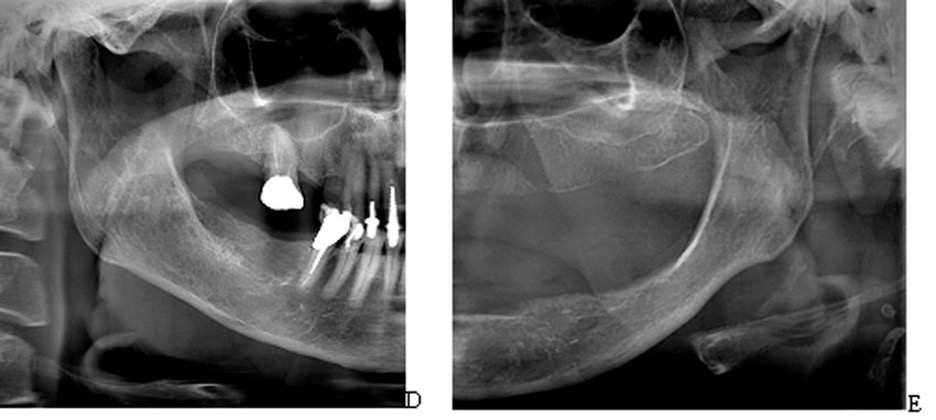Osteoporosis in the jaw bone is a serious problem in The Bahamas.
The word osteoporosis means “porous bones”. The condition occurs when our bones lose calcium and minerals, causing them to become weak and brittle. Bone is a living tissue that is constantly changing, yet when the creation of the new bone doesn’t keep pace with the removal of old bone, osteoporosis occurs. As a result of this, people are more pruned to experience fractures.
In this issue, we will discuss the frustrating challenges with osteoporosis, associated dental side effects and options for treatment.
Both osteoporosis and gum disease are prevalent conditions. Osteoporosis impacts half of the elderly over 65 and periodontal disease affects more than half of the adult population.
The quality of our bone affects all parts of our bodies, not just our spines and hips. In this way, osteoporosis has an immediate connection to early tooth loss.
The most common treatment for osteoporosis is the class of medications referred to as bisphosphonates. These medications can have serious side effects and severe dental implications. The most serious of the side effect is a condition called Osteonecrosis of the jaws (ONJ).
Osteonecrosis can occur spontaneously or can be associated with tooth extractions and/or a local infection. Because of these medications; like Fosamax, Actonel and Boniva, the unfortunate side effect is delayed bone healing. This delayed healing causes jaw infection, pain and suffering. Areas of the jaw bone becomes necrotic or rotten and can literally flake off. The decaying bone cannot receive adequate oxygenated blood supply to remain nourished and replenished.
These medications work by blocking the mechanism to remodel bone. Bone is a living structure and the old bone must be removed by cells called osteoclasts. If osteoclasts stop working then the old bone remains and new bone keeps forming. Since this mechanism affects the blood supply to the old bone, it remains and major infections could be the result.
If you have osteoporosis, there is even more reason for you to stay diligent with good oral hygiene habits. Dentists recommend that you floss once a day and brush twice a day, for two minutes each time. Undoubtedly, keeping a clean mouth greatly diminishes the chance for dental problems; including the loss of teeth. One of the best ways to reduce the risk for osteoporosis is by maintaining a well-balanced diet rich in calcium and vitamin D; which helps the body absorb calcium. As we age, we need more of these important vitamins. Also, exercise plays a pivotal role in preventing and treating osteoporosis. If you’ve been diagnosed, start a regular workout routine with resistance training to reduce the risk of bone loss. To ensure the benefits of your workout, talk to your doctor.
My best advice is to do as much as we can without medication if you can. Sometimes, if you change your bad habits, the problem may resolve itself. Eat properly, exercise, seek wise counsel and practice good dental hygiene. You just need to start now.
Dr. Kendal V. O. Major is Founder and CEO of Center for Specialized Dentistry which is a comprehensive family dental practice operating in Nassau. He is the first Bahamian Specialist in gum diseases and dental implants since 1989. He also is a certified Fastbraces provider. His practice is located at 89 Collins Avenue, Nassau at (242)325-5165 or [email protected].

Bisphosphonate related Osteonecrosis. Jaw is literally rotting away.

Osteoporosis is seen on the X-ray to the right. Compare this to the x-ray on the left. Bone has become brittle and subject to fracture and early tooth loss.





